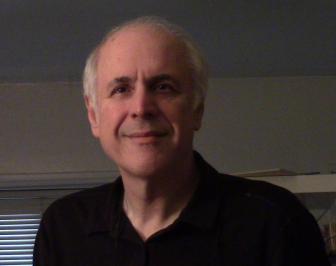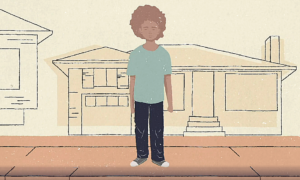 It is child welfare’s equivalent of stop-and-frisk. It happens over and over again, it’s traumatic, it’s usually baseless and unnecessary, and it’s racially biased. It is a child abuse investigation.
It is child welfare’s equivalent of stop-and-frisk. It happens over and over again, it’s traumatic, it’s usually baseless and unnecessary, and it’s racially biased. It is a child abuse investigation.
Increasingly, across America, this kind of state-inflicted trauma is becoming a routine part of growing up. Nationwide, a study suggests it happens to a majority of black children. And in one Pennsylvania county, there may be no child, or at least no impoverished child, who is spared.
Here’s how it works: A caseworker or a police officer, perhaps both, comes to the door in the middle of the night. Or they go to a school and call a child out of class.
The strangers then question the child about the most intimate aspects of her or his life. The children watch as the strangers search the home, poking into every corner and passing judgement on the home’s neatness and cleanliness. Most try to be as kind as possible, but there is no way to mitigate the inherent trauma. That trauma is compounded if the child is strip-searched as workers look for bruises.
Three of America’s leading 20th-century scholars in the child welfare field, the late Anna Freud, Joseph Goldstein and Albert J. Solnit, warned about this kind of trauma, writing that children
“react even to temporary infringement of parental autonomy with anxiety, diminishing trust, loosening of emotional ties, or an increasing tendency to be out of control. The younger the child and the greater his own helplessness and dependence, the stronger is his need to experience his parents as his lawgivers — safe, reliable, all-powerful and independent.”
And, if the allegation is sexual abuse, it can get much worse. Here’s how a 9-year-old girl described it in an affidavit for a case that went all the way to the U.S. Supreme Court:
“Then I was taken to some doctor’s office, but it wasn’t my doctor. It was full of strangers I had never seen before. I didn’t know who they were. I wish my mom could have been there. I felt very scared and alone.
They asked me all sorts of questions and then they looked all over my body, and it was very uncomfortable.
I felt like a prisoner and that I had to do everything they told me. I did not want to be examined. I wish I had not had to go through that. I never understood why it was happening to me. They took pictures of my private parts and never asked my permission.”
After all that, the caseworker decides if the allegation is true or not. There is no trial, no chance for the family to defend itself. In most states, the worker need simply believe, in her own mind, that it is slightly more likely than not that the allegation is true. And yet, more than 80 percent of the time, caseworkers find that the allegation is false. And a study that “second-guessed” such decisions found that caseworkers were two to six times more likely to wrongly label an allegation true than they were to wrongly label it false.
In addition to the harm done to all those innocent families, this means workers spend 80 percent of their time spinning their wheels, time that is, in effect, stolen from finding children in real danger.
In a field in which “trauma-informed” is the latest buzzword and you can’t go a day without reading about “adverse childhood experiences,” one would think practitioners would do everything possible to minimize the number of children needlessly exposed to this kind of psychological stop-and-frisk.
But they don’t. I’ve written previously about how such interrogations have become the new normal for African-American children. A recent study found that 53 percent of black children (and more than one-third of all children) will have to endure it during the course of their childhoods.
In some places, it turns out, the figure is much higher.
A recent report about child welfare in Pennsylvania included an interview with Betzi White who runs the child welfare agency in Cambria County, a rural county in the western part of the state. About 27,000 children and teenagers live in the county. According to the report:
“Last year we did a kid count,” White said of her agency, determining how many individual children its caseworkers saw in 2016. “We came up with an unduplicated count of all kids at 9,840.
“That’s 37 percent of the entire population under 18.”
Not 37 percent over the course of their childhoods, which would be bad enough. Thirty-seven percent of children forced to endure being “seen” by county child protective services workers in a single year.
White does not elaborate. There is no breakdown by income. But it’s reasonable to assume that if 37 percent of all children are “seen” in a single year, virtually every impoverished child in Cambria County will have this state-sanctioned trauma inflicted upon her or him before reaching the age of 18.
But what is truly horrifying about this is the lack of any expression of horror. White presents these figures not to discuss what her agency is doing to children but rather to explain why her workers are overloaded.
The entire report, issued by State Auditor Eugene DePasquale, is filled with the usual bloviation and boilerplate that come from politicians who know that a great way to garner positive press is to “crack down on child abuse.” His recommendations boil down to: Let’s have the same lousy system only bigger!
Thus, the report acknowledges that the number of calls to the state’s child abuse hotline exploded after the legislature’s knee-jerk response to the sex abuse scandal involving former Penn State coach (and foster parent) Jerry Sandusky: Lawmakers passed a vast number of new laws encouraging anyone and everyone to report anything and everything.
But DePasquale never acknowledges that such grandstanding leads to an explosion of false reports — and a foster-care panic, a sharp, sudden rise in entries into care, especially in places like Philadelphia with a history of weak child welfare leadership.
So DePasquale and the rest of what passes for leadership in Pennsylvania continue on their merry way — guaranteeing increased trauma for the state’s most vulnerable children.
Richard Wexler is executive director of the National Coalition for Child Protection Reform.




























